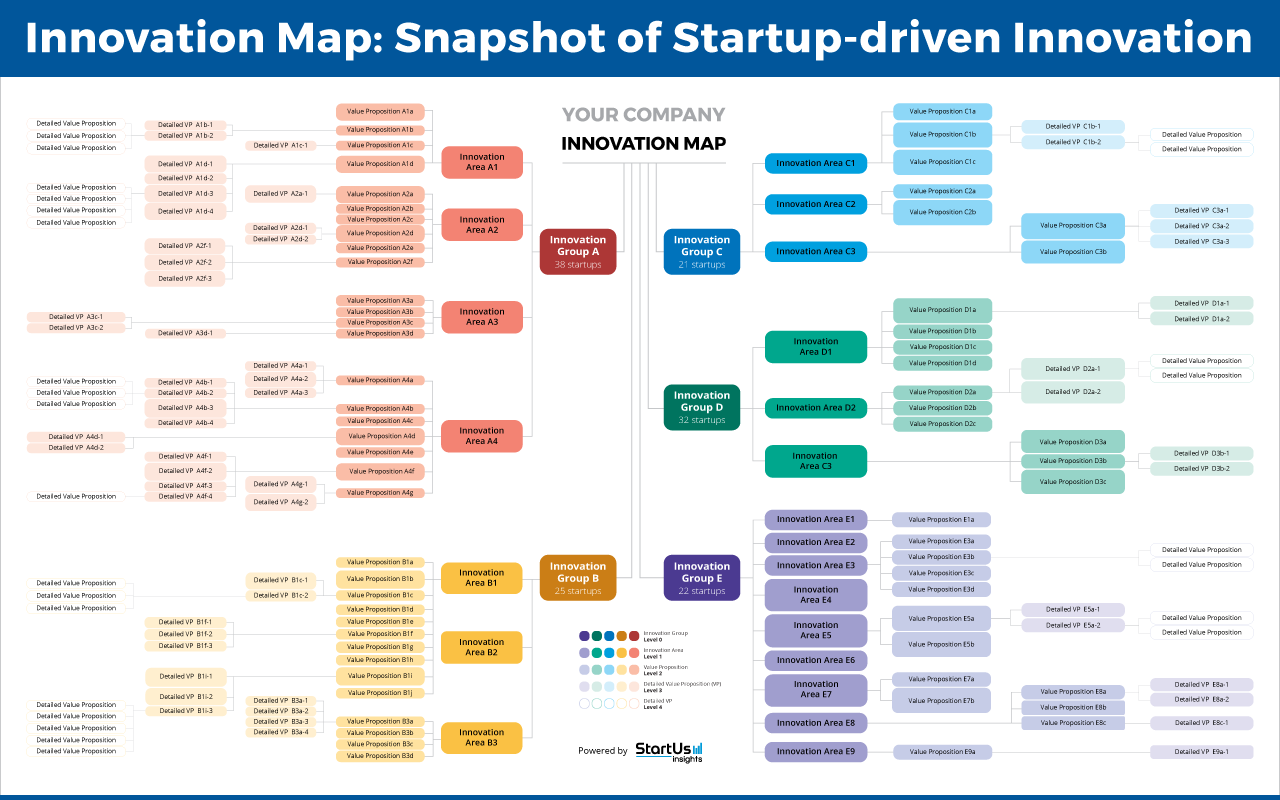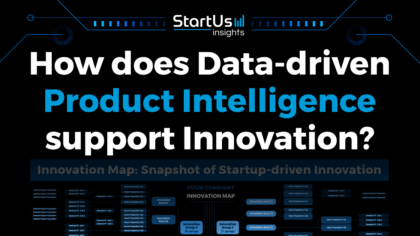Accelerate Productivity in 2025
Reignite Growth Despite the Global Slowdown
In today’s technology landscape, the rapid emergence of new technologies and products is mind-boggling. On developing a novel product, companies can’t expect to enjoy the competitive advantage for as long as they could earlier. It’s only a matter of time before their competitors develop similar or better offerings. Consequently, companies are under constant pressure to innovate. This is where data-driven product intelligence comes in, streamlining product development and innovation in a single process. It allows product and innovation managers to pursue continuous innovation across the product lifecycle.
Data-driven Product Intelligence
Companies stand to gain a lot from understanding how their consumers use their products. Fortunately, as more industries embrace digitalization, companies have large amounts of data on this. For example, tracking complex user experiences provides rich insights into customer behavior. This allows companies to build exactly what the customers need and market it better. Further, it enables real-time collaboration between product, growth, and innovation teams. This maximizes the impact of product management on a company’s growth.
Role in advancing Open Innovation
Product managers are increasingly making product intelligence a major focus of their work. However, innovation managers also benefit from data-driven product intelligence. It automates product data collection, allowing them to use feedback from customers to improve their products.
Why is Product Intelligence Important?
No amount of marketing can salvage a bad product. Also, the most illustrious product companies of today have built products that they probably regret. Product intelligence ensures that you build innovative products that are more hits than misses. Customer intelligence empowers companies to balance product development with long-term innovation goals. It serves the following objectives:
Tracks User Sentiment
A critical bulk of product data that companies collect is how their customers use and interact with their products. Today, companies have far more avenues to collect customer data such as online reviews or social media posts. Data-driven product intelligence taps this wealth of data to track user sentiment in real time. This facilitates companies to quickly respond to changing customer behavior.
Product managers utilize user feedback to optimize the product experience. They improve features that increase customer engagement and discard those that don’t. More recently, innovation managers are using customer feedback to identify opportunities for customer-based innovation. Lastly, sentiment tracking also improves the quality of customer onboarding, leading to better customer retention.
Improves Quality Control
Product intelligence tracks key performance indicators (KPIs) across product development. Monitoring product pipeline metrics enables companies to identify errors in their processes early on. This improves product quality across the entire product portfolio. In turn, this contributes to lower recall and greater customer satisfaction. With startup and technology scouting, companies receive access to technologies that improve key product metrics, further adding to these benefits.
Companies now also track data on competitors’ products. This allows innovation managers to improve the efficiency of manufacturing operations. It enables both incremental innovation in a company’s processes as well as disruptive innovations that create new niches within existing markets.
Accelerates New Product Development
Unlike startups, companies are not lean and agile. Consequently, the pace of product development slows down as companies grow in size. Product intelligence allows product and innovation managers to overcome this challenge. It provides projections on the commercial viability of product lines prior to development. This allows managers to enhance product portfolio management and focus on products with better odds of success.
Companies also use trend analysis to identify emerging trends that have the potential to impact their portfolio management. Moreover, technology scanning contributes to project benchmarking, ensuring that product development is at par with the latest industry advances. It also facilitates the cross-fertilization of ideas, which further generates new ideas for product development.
Increases Competitive Advantage
Outdated or inaccurate product data can be very costly for companies. It leads them to develop products that are out of demand by the time they are launched or are too early for the market. Lack of product usage feedback in development increases the time-to-market. All of these diminish a company’s competitive advantage.
Data-driven product intelligence, on the other hand, enables innovation managers to maintain a synergy between product development and broader innovation goals. This creates a competitive advantage for companies that use product intelligence well. As companies now compete on a global scale and time-to-market reduces, product intelligence becomes even more important.
Leverage Data for Product Intelligence
A data-driven approach takes the hassle out of scanning product data and provides insights that advance innovation. It gives you actionable insights from billions of data points from disparate sources. The StartUs Insights Discovery Platform analyzes firmographic data on over 2,5 million startups to identify startups and technologies that enable you to tap product intelligence. Some of our services include:
- Trend Map: Based on data-driven research, we classify emerging trends and group them into categories so you can see all of them at one glance.
- Trend Report: The Trend Report provides you with quantitative insights into the most impactful trends. Additionally, it presents exemplary startups advancing each trend.
- Startup Database: The Startup Database lets you discover many innovative startups advancing the emerging technology trends in your industry.

Monitoring startup-driven innovation is a crucial aspect of product intelligence as it allows companies to benchmark product development against the latest innovations.







